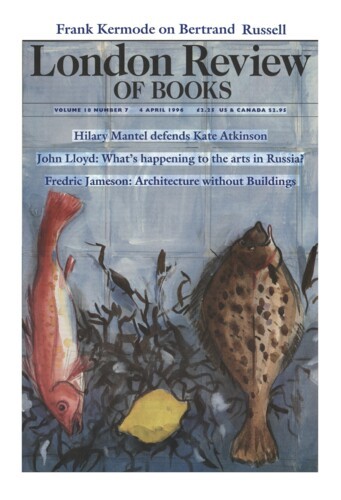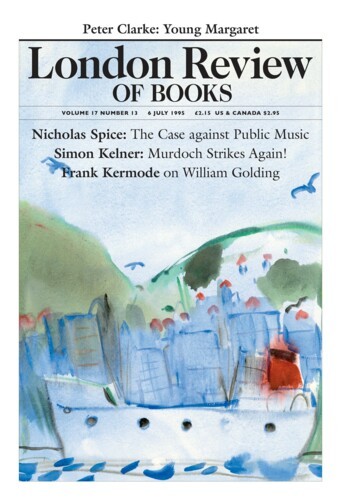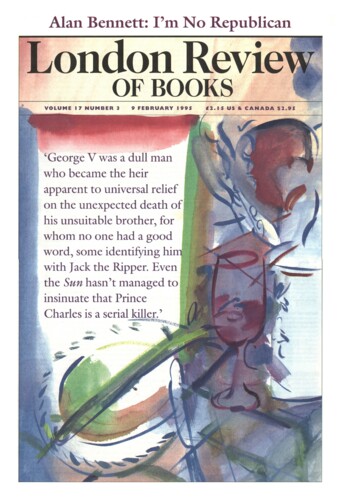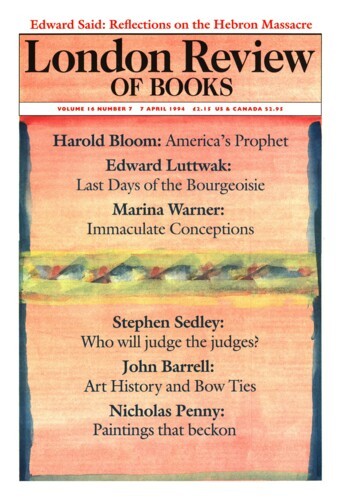Diary: On Moving
Mary Beard, 4 April 1996
The American Dream starts from a covered wagon; it takes mobility for granted. Recent censuses show that more than 43 million Americans move house each year. This is an annual migration roughly equivalent to the entire population of Illinois, Indiana, Michigan, Ohio and Wisconsin (or, alternatively, every single American in their twenties) relocating every 12 months; and it all seems to pass relatively unnoticed. I asked in a Cambridge (Mass) bookstore last week for a guide to moving house – not intending to join the migration, but simply out of a vague cross-cultural curiosity at how a nation manages to get itself rehoused at such an astonishing rate. But the sales assistant just looked baffled (in a ‘what on earth would there be to write about that?’ sort of way) and politely suggested I call a truck rental company. A shop that had self-help manuals to cover every crisis of American life, from starting fourth grade to burying a pet, could only offer the Yellow Pages when it came to house moving.’





